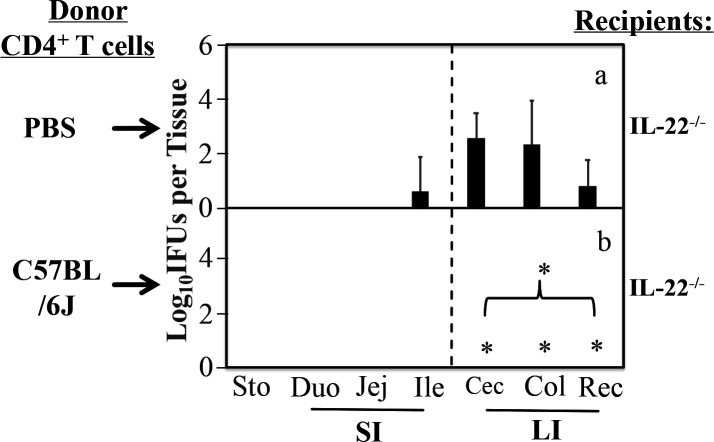Fig 2.
Effect of CD4+ T cells from C57BL/6J mice as donor cells on the spreading of pGP3-deficient C. muridarum from the small intestine into the large intestine in the IL-22−/−-recipient mice. IL-22−/−-recipient mice were adoptively transferred without (panel a, n = 4) or with (b, n = 5) 1 × 106 donor CD4+ T cells purified from C57BL/6J mice. The transfer was carried out via retro-orbital injection twice 3 days before and 1 day after infection, respectively. Mice were infected via intrajejunal inoculation with 1 × 105 IFUs of pGP3-deficient C. muridarum (CMpGP3S). Three days after inoculation, mice were sacrificed for collecting gastrointestinal tissues as listed along the X-axis. Live CMpGP3S organisms were recovered from each tissue sample and expressed as log10 IFUs per tissue. The data came from two independent experiments. Note that IL-22−/− mice receiving wild-type donor CD4+ T cells completely prevented the spreading of live chlamydial organisms into the large intestine. * denotes an observed P-value <0.05, based on a Wilcoxon rank-sum test, a comparison of the live chlamydial organisms in each of the large intestinal tissues and overall.

